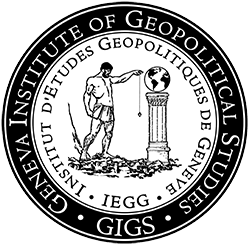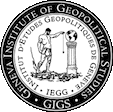Geopolitical Analysis
EXECUTIVE CERTIFICATE COURSE on Geopolitical Analysis
18 – 22 November 2024
Brochure_Geopolitical_Analysis_Course
OBJECTIVE
The objective of this study program is to introduce the main components of the geopolitical analysis method. The course adopts an interdisciplinary approach that incorporates strategic, geographic, historic, cultural, cognitive and economic dimensions in to decipher the complexity of contemporary international relations. The central themes include the concepts and method of geopolitical analysis, identity factors and geopolitical representations, as well as the application of strategic analysis, geopolitical risk assessment, strategic foresight and geopolitical scenario building. Case illustrations are presented on various geopolitical configurations that significantly impact the current world system. Having completed this study program, participants are expected to demonstrate the ability to apply the geopolitical analysis method in different case study situations and to integrate geopolitical factors in decision-making processes.
PROGRAMME HIGHLIGHTS AND LEARNING OUTCOMES
- Develop the ability to apply the geopolitical analysis method in different case study situations;
- Assess the risks and opportunities entailed by geopolitical dynamics;
- Integrate geopolitical factors in decision-making processes;
- Construct geopolitical scenarios;
- Integrate strategic foresight in decision-making processes;
- Enhance critical thinking to assess media coverage on international events;
- Participate actively in an interactive and non-conformist course;
- Develop your professional networks and exchange views with course participants having different national, cultural and professional backgrounds.
TARGET GROUP OF PARTICIPANTS
Persons working for International Organisations and government agencies, diplomats, people working in various economic sectors, graduate students and other interested individuals.
LECTURES
Introduction to Geopolitics
Geopolitical Factors of Switzerland
Enduring and Variable Factors of Geopolitical Analysis
Geopolitical Risk Assessment
The Basics of Strategic Foresight and Geopolitical Scenario Building
The Belt and Road Initiative in an Evolving Geopolitical Context
EXERCISE /WORKSHOP
Interactive Geopolitical Exercise: Analysis and Strategic Choices
Geopolitical Risk Analysis Exercise
Strategic Foresight and Geopolitical Scenario Building Exercice
Dates: From Monday 18 November to Friday 22 November 2024
Schedule: Conferences take place between 9AM-12 PM & 2-5:00 PM in Geneva
Language: English
Tuition fee: 2000 CHF / Students 1300 CHF
Tuition fee does not cover travel, accommodation, meals and health insurance.
GIGS does not offer financial aid to attend its seminars.
A Certificate in Geopolitical Analysis can be obtained upon completion of the course.
ADMISSION REQUIREMENTS
Bachelor degree obtained and English language proficiency.
Application deadline: 3 September 2024
Application form
Lecturers
Mr. Gyula CSURGAI obtained his Doctorate from the University of Geneva. His doctorate research focused on the development of the geopolitical analysis method and its application in different case study situations. Ho holds Degrees in Political Science from the University of Concordia (Canada) and the University of Toulouse (France). Dr. Csurgai earned Postgraduate Degrees in European Studies from the European Institute at University of Geneva and from the department of Philosophy from the same university. Dr. Csurgai has taught geopolitics, geoeconomics, strategy, international relations and diplomacy for undergraduate, masters, and doctorate programs at different universities in Switzerland and in other countries. He has participated in several international research projects and has provided expertise to various international organizations, governments and private corporations. Dr. Csurgai is co-founder of the Geneva Institute of Geopolitical Studies. He published several books and articles in the fields of geopolitics, geoeconomics, economic intelligence, and international relations.
Mr. Alexandre LAMBERT holds a Ph.D. in International Relations from the Graduate Institute of International and Development Studies, Geneva. Dr. Lambert has been lead researcher on the Organization for Security and Cooperation in Europe (OSCE) at the Graduate Institute in Geneva, project officer at the Geneva Centre for the Democratic Control of Armed Forces (DCAF), and a civil servant at the Swiss Federal Department of Defence. He also provides independent policy advice to the OSCE Forum for Security Cooperation (FSC), including in the context of its regional operations in the Western Balkans, South Caucasus, and Central Asia. Dr. Lambert has published several books and articles in the fields of international relations, geopolitics and international security. Currently his research mainly focuses on the geopolitics of Eurasia and the Belt and Road Initiative. Dr. Lambert has been teaching International Security, Foreign Policy and Geopolitics at different Universities in Switzerland and in other countries for several years. Dr. Lambert is Academic Director of the Geneva Institute of Geopolitical Studies.

